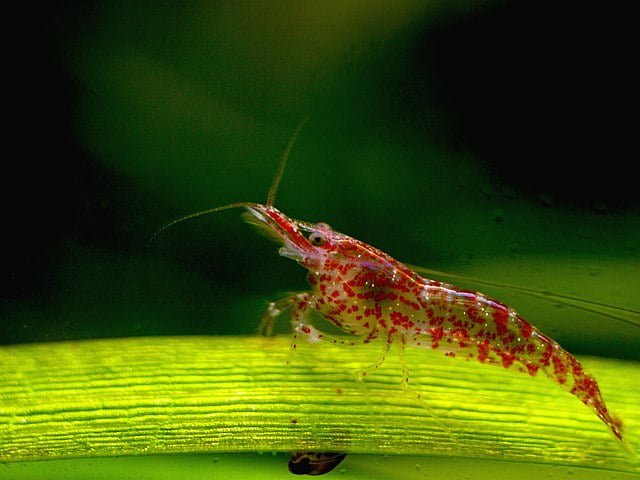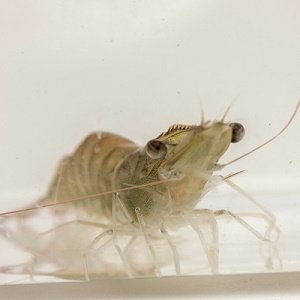USA – On December 19, 2019, the Committee on Ways and Means of the U.S. House of Representatives requested that the U.S. International Trade Commission (“ITC”) conduct an investigation of the potential economic effects on U.S. fishermen of competition with illegal, unreported, and unregulated (“IUU”) seafood imports. In response, the ITC initiated a factfinding investigation, Investigation No. 332-575, regarding seafood obtained via IUU fishing.
Over the last three months, the ITC has invited public comment on the issue of IUU seafood imports into the United States and the impact of such imports on U.S. commercial fishermen. As part of this public participation process, the Southern Shrimp Alliance has made three formal written submissions, including an August 21, 2020 prehearing brief, a September 17, 2020 posthearing brief, and an October 9, 2020 written submission. The Southern Shrimp Alliance also presented testimony and participated in the ITC’s September 3, 2020 public hearing.
In its submissions and testimony, the Southern Shrimp Alliance has emphasized that significant volumes of wild-caught shrimp imported into the United States are the product of IUU fishing and that farmed shrimp is a massive conduit for IUU seafood reaching U.S. consumers because of the role played by illegally harvested fish in the production of shrimp feed overseas. The Southern Shrimp Alliance also stressed to the ITC the prevalence of forced and child labor in seafood supply chains and the importance of insuring that any definition of IUU fishing encompass the utilization of forced, slave, and child labor in seafood harvesting.
The Southern Shrimp Alliance further expressed its support for NOAA Fisheries’ Seafood Import Monitoring Program (“SIMP”) and explained that a review of trade data demonstrates that there have been dramatic changes in import patterns for several species of seafood subject to the program. These stunning trade pattern shifts demonstrate that substantial volumes of seafood, worth tens of millions of dollars each year, were likely to have been historically imported into the United States despite the inability of their suppliers to demonstrate that this seafood had been legally harvested.
Finally, the Southern Shrimp Alliance summarized its experience working to eliminate the importation of shrimp contaminated with banned antibiotics and in countering shrimp trade fraud as a demonstration of the fact that the U.S. imported seafood market is not self-regulating. As the organization explained to the ITC, the Southern Shrimp Alliance’s experience teaches that, in the absence of government regulation and meaningful enforcement of the law, seafood importers in the United States will pursue the lowest cost sources of supply, with little regard for the integrity of their supply chains.
While several academics, public interest, and other industry organizations, including the Louisiana Shrimp Association, participated in the ITC’s investigation in order to highlight the severity of the challenges presented by global IUU fishing, the National Fisheries Institute (“NFI”) and some of its members have attempted to use the agency’s investigation as a vehicle to attack SIMP. In written comments submitted to the agency on October 9, 2020, NFI criticized published academic estimates of the level of IUU fishing worldwide and the volume of IUU seafood involved in international trade, questioning the rigor of the methodologies used to arrive at these published estimates. NFI requested that the ITC disregard the estimates of these academics and decline to rely on them. At the same time, without presenting anything beyond anecdotes and conclusory statements, NFI attacked SIMP as imposing a massive burden on U.S. seafood importers and asked that the ITC include its estimates of SIMP’s impact in any report issued by the agency at the conclusion of the investigation. Thus, without comment on the irony inherent in its position, NFI simultaneously asked the ITC to ignore peer-reviewed, published academic studies while requesting that the agency rely upon its estimates of the impact of SIMP on U.S. seafood importers for which no support has been provided.
“Federal policy makers should have a better understanding and appreciation for the significant harm that IUU fishing causes to U.S. commercial fishermen. The ITC’s investigation is an important step in that direction,” said John Williams, the Executive Director of the Southern Shrimp Alliance. “This investigation also shows how important it is for domestic commercial fishing industries to be involved in these federal administrative proceedings. Whether we are in the room or not, seafood importers will be there telling folks that they’re hotter than a Texas cattle brand.”
Source: Southern Shrimp Alliance
Stay Always Informed
Join our communities to instantly receive the most important news, reports, and analysis from the aquaculture industry.
Editor at the digital magazine AquaHoy. He holds a degree in Aquaculture Biology from the National University of Santa (UNS) and a Master’s degree in Science and Innovation Management from the Polytechnic University of Valencia, with postgraduate diplomas in Business Innovation and Innovation Management. He possesses extensive experience in the aquaculture and fisheries sector, having led the Fisheries Innovation Unit of the National Program for Innovation in Fisheries and Aquaculture (PNIPA). He has served as a senior consultant in technology watch, an innovation project formulator and advisor, and a lecturer at UNS. He is a member of the Peruvian College of Biologists and was recognized by the World Aquaculture Society (WAS) in 2016 for his contribution to aquaculture.







